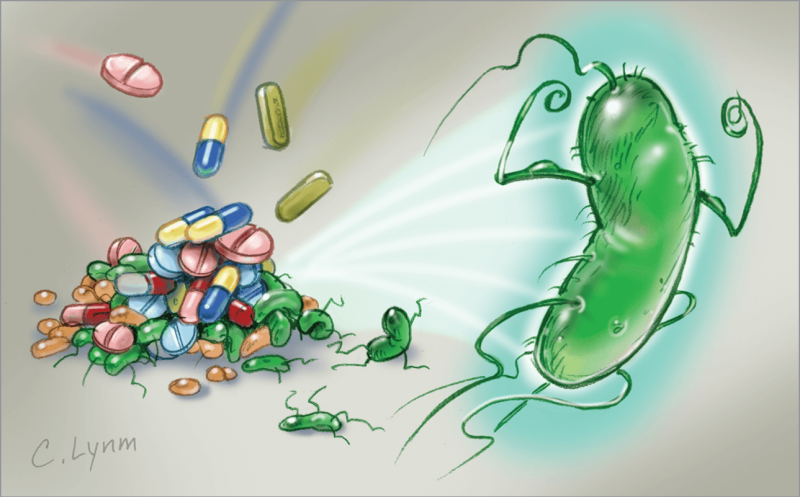The “Antibiotic Apocalypse” scenario, where drug-resistant bacteria end humanity, often seems to be somewhat inevitable, a process driven so strongly by the vast powers of industries such as agriculture and healthcare that humanity might as well lie down and let a tide of invincible bacteria rise off kitchen surfaces to smother us all.
Back in pragmatic reality, scientists are coming up with ever-more ingenious ways to combat the growing threat, exemplified by a recent paper from researchers at the European Molecular Biology Laboratory (EMBL). The authors have determined the molecular origin of a mechanism bacteria use to transfer resistance genes that fuels the rapid spread of resistance.
…
Senior author and research leader Orsolya Barabas explained how the protein facilitates the spread of genes: “If you think of ropes or wires, they are usually bundled and wound-up to make them stronger. If you want to tear or cut one, it’s much easier if you unwind and loosen it first,” says Barabas, “It’s the same for DNA, and the transposon transfer mechanism takes advantage of this.”
…
The potential for this research is huge, as Barabas explains: “Our discoveries will allow us to design improved diagnostic and preventive approaches, so as to better control the spread of antibiotic resistance genes. In addition, these insights can allow us to discover strategies to block resistance transfer, and our current study already provides proof-of-principle for this. Such strategies could, for example, help prevent resistance transfer in people diagnosed as carriers of antibiotic resistant bacteria.”
Editor’s note: Read the full study
Read full, original post: Averting the Antibiotic Resistance Apocalypse































